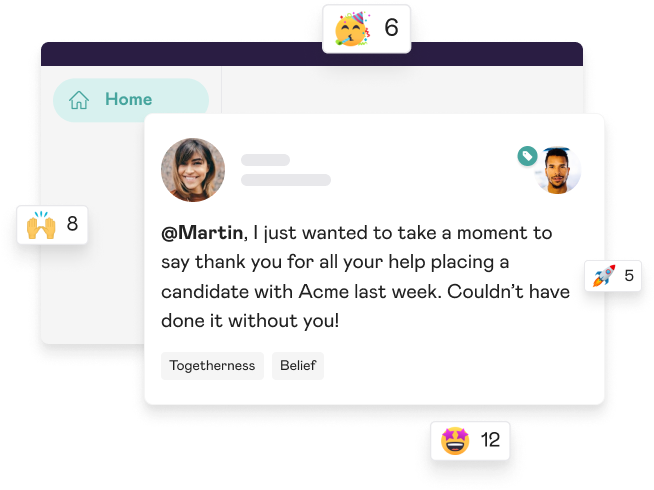We’ve all heard of the 4-day week and its numerous benefits, but have you heard of the 9-day fortnight?
Flexibility at work can come in all shapes and sizes, and one working pattern currently on the rise is the 9-day fortnight. If you’re an employer looking for flexible working solutions to suit your organisation, you may have noticed this working pattern popping up on LinkedIn or Google but aren’t quite sure what exactly it entails.
Why is flexibility important?
In today’s work environment, employees are demanding more flexibility – and even leaving jobs searching for companies that can offer it. According to Flexjobs, 80% of people said they’d be more loyal to their employer if they offered flexible working.
The truth is that everyone is different – and businesses need to realise that. A flexible workplace is mutually beneficial, workers can achieve work-life harmony, and companies start to see the fruits of their employees’ best selves.
What is a 9-day fortnight?
All employees have the legal right to request flexible working, and a 9-day fortnight working pattern could be one of the types of flexible working arrangements requested. A 9-day fortnight can come in two forms. The first is a compressed working week where employees work a little longer each day to earn a day off every other week.
During those nine days, your employees may work longer (around 30 minutes to 1 hour) to accumulate the extra time and take every other Friday off. However, there are cases where some companies don’t require their employees to work additional hours, letting them work a 9-day fortnight and keep the same pay.
The other variation is where employees work normal hours and are gifted an extra day off every two weeks.
The arrangement needs to benefit both employees and the business, so if you’re planning on implementing this flexible working pattern, it’s important to assess the situation, iron out any potential challenges and work out what days off work best so that you don’t leave teams short-staffed.
What are the benefits of a 9-day fortnight?
There are many benefits of implementing a 9-day fortnight in your organisation, which are:
- Better work-life balance: Your employees will gain 26 additional days off on their annual leave! 9-day fortnights also promote a better work-life balance for employees as they have an extra day to themselves every other week.
- Boost in productivity: Similar to other flexible working patterns, many companies implementing the 9-day fortnight have said they had an overall boost in productivity levels. Happy staff = productive staff.
- Competitive advantage: With 77% of employees wanting flexible working hours, implementing a 9-day fortnight can give your company a competitive edge when it comes to attracting (and retaining) top talent. This is likely to be a rare benefit on the market!
How to implement a 9-day fortnight?
If you work for a company that needs a customer support team on hand, a 9-day fortnight might not seem like the best option – but nothing is impossible!
Typically, companies with customer-facing teams who want to cover 5 days a week divide their teams into two, ensuring at least one team is working at all times.
Before fully committing to this working pattern, it would be worth running a trial to see how your employees feel about it. During this time, it’ll be worth checking in on engagement, productivity, morale and collecting feedback from your team.
Which companies offer 9-day fortnights?
You may be looking to hear from companies who have implemented a 9-day fortnight on a permanent basis. Here are some of those companies, and why it works for them:
CharlieHR
CharlieHR, a human resources system, trialled a 9-day fortnight for nine months. With their policy, employees simply got every other Friday off with no change in salary, holidays or working hours. Customer facing teams had a rota schedule and a day in lieu to make up for each Friday they work. After their trial, they looked at productivity metrics and employee engagement surveys with questions around stress and work-life to decide whether to keep it.
“According to the survey we sent out to the team monthly, we saw a 24% decrease on average in work-related stress across the whole company.”
Team members reported an 11% increase in their ability to focus and be productive, and a 30% increase in their ability to do deep work. For team leaders, only 20% reported a decrease in productivity and 86% of team leaders felt they could hit their weekly targets despite having less time.
The company has also seen an increase in quality applicants for open roles, and the 9-day fortnight is mentioned as one of the top three reasons for wanting to join the company.
Reason Digital
Reason Digital, a Manchester-based creative agency, decided to go the compressed hours route with their 9-day fortnight. We ran a pilot for three months with team volunteers who gave the scheme a try, fully aware that it was purely a pilot.
“The worry we had around the impact of a longer day was outweighed by the benefits. Productivity actually increased slightly and pilot volunteers reported the mental health benefits that come from having an additional day off every fortnight.”
Their 9-day fortnight became a permanent, opt-in feature in early 2019.
Float
Float is a cash flow forecasting software as a service company based in Edinburgh. The team considered a 4-day work week, but a 9-day fortnight felt like a better fit. They trialled the new work schedule for about six months, and long story short, it’s here to stay.
According to Float’s CEO, Colin Hewitt, “It’s been easier to adjust to than a 4 day week as a company and yet the benefits of an extra 26 days off per year are huge. There is definitely something to be said for being able to be all off at the same time. […] For companies where the 4-day week is a step too far – the 9DF might be a good alternative.”
Key takeaways on workplace flexibility
Workplace flexibility is a two-way street – organisations reap the greatest benefits of flexibility when it’s something that’s valued and prioritised by the company and its employees.
Companies and employees can enjoy a more positive, productive work environment where people feel valued by being adaptable to change, accommodating new requests and open-minded to new ideas (like a 9-day fortnight).
Transform your culture with Mo

- Improve employee engagement scores
- Reduce employee churn
- Build a collaborative culture
Mo is an employee recognition and engagement platform that can help leaders improve collaboration and morale, reduce employee churn and drive change.
Our platform creates a vibrant culture by developing team habits, encouraging people to celebrate success, recognise results and appreciate colleagues.
Your complete toolkit for connecting and motivating teams in the new world of work. Book a demo with our team today!




